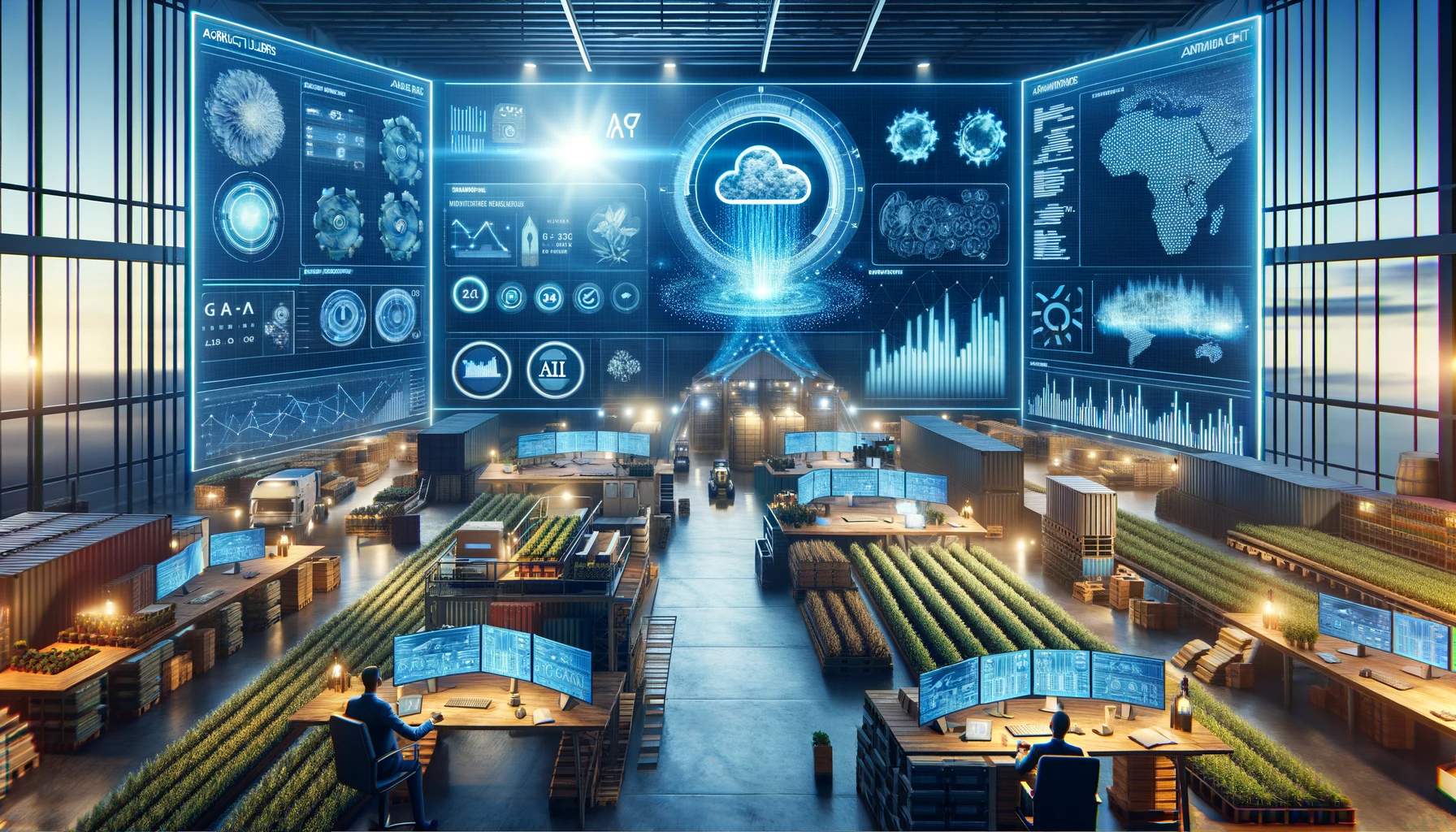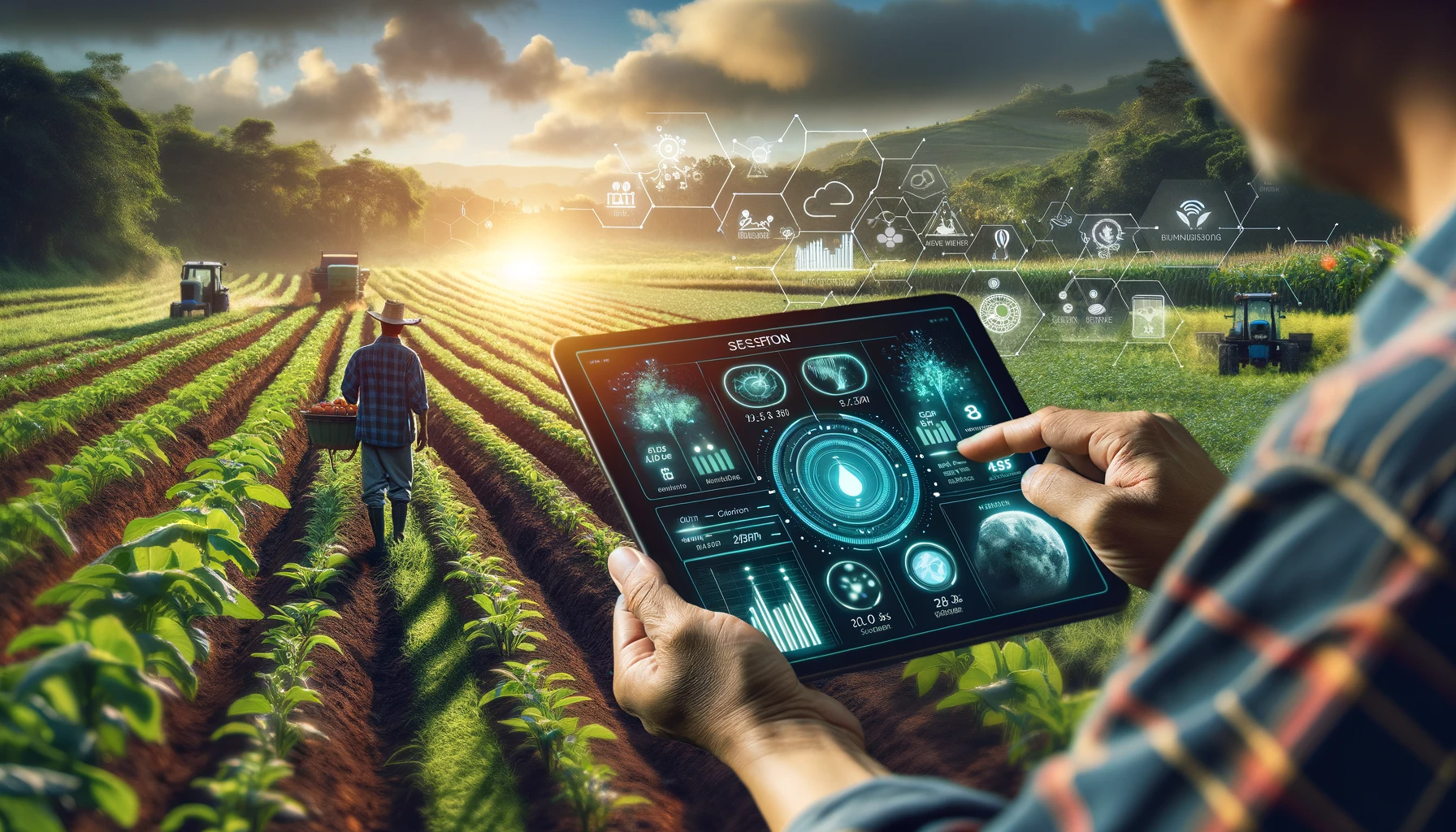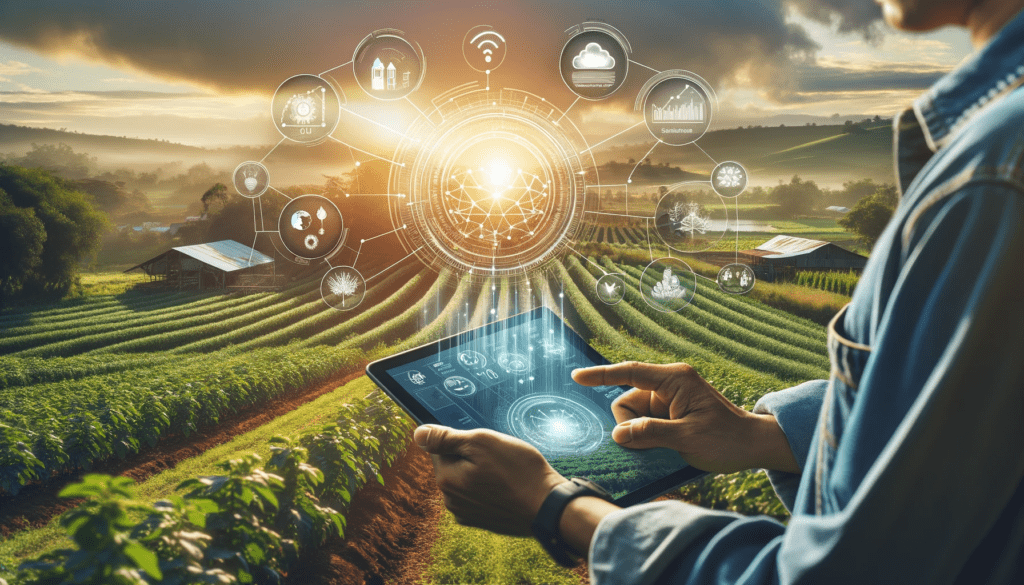Agricultural supply chains form the backbone of our global food system, ensuring that food products reach consumers efficiently and reliably. These complex networks span from the farm to the consumer’s plate, involving multiple stages of production, processing, distribution, and retail. The smooth operation of agricultural supply chains is critical for food security, economic stability, and meeting the ever-growing demands of a global population.
In recent years, the emergence of Artificial Intelligence (AI) has ignited a technological revolution with profound implications for various industries. AI, characterized by machine learning, data analysis, and automation, has started to transform the way we manage and optimize agricultural supply chains. This article explores the dynamic interplay between AI and agricultural supply chains, shedding light on the transformative potential of AI-driven solutions.
The Complexity of Agricultural Supply Chains
Agricultural supply chains are among the most intricate and multifaceted systems in the modern world. These chains encompass a spectrum of activities, including planting, cultivation, harvesting, transportation, processing, packaging, distribution, and retail. At each stage, a myriad of factors must be considered, such as soil quality, weather conditions, pest management, and market fluctuations.
Managing agricultural supply chains effectively involves navigating numerous challenges. These challenges include logistical complexities, ensuring product quality and safety, minimizing waste, optimizing resource utilization, and responding to the dynamic nature of global markets. The need for efficient supply chain management in agriculture has never been more critical, especially as the world faces the task of feeding a growing population.
The Role of AI in Agricultural Supply Chains
Artificial Intelligence (AI) has emerged as a formidable tool in addressing the complexities and challenges inherent in agricultural supply chains. At its core, AI encompasses a suite of technologies and algorithms that enable computers to mimic human-like intelligence and decision-making. This capability positions AI as a game-changer in agriculture, offering innovative solutions to longstanding issues.

AI is increasingly finding its way into various facets of agricultural supply chain management. By harnessing data analytics, machine learning, and automation, AI brings efficiency and intelligence to the table. For instance, predictive analytics powered by AI can anticipate crop yields, optimize planting and harvesting schedules, and improve resource allocation. Autonomous vehicles and drones equipped with AI algorithms can monitor fields, detect anomalies, and perform tasks such as irrigation or pest control with precision.
AI’s role extends beyond the farm gate. It plays a pivotal role in optimizing the logistics and distribution aspects of supply chains. AI-driven systems enhance decision-making regarding transportation routes, storage facilities, and inventory management, reducing waste and ensuring timely delivery to consumers.
In the following sections, we will delve deeper into the specific applications of AI in agriculture, exploring how it enhances efficiency, transparency, and sustainability throughout the supply chain. From precision farming to real-time market insights, AI is poised to revolutionize the way we manage and optimize agricultural supply chains.
Enhancing Efficiency and Precision in Farming
AI technologies have revolutionized farming operations, making them more efficient and precise. Through the integration of data analytics, machine learning, and Internet of Things (IoT) devices, farmers can optimize various aspects of crop management. This includes planting, irrigation, pest control, and harvesting.
One notable application of AI in agriculture is the use of drones and sensors to collect data from fields. These devices capture information on soil moisture, temperature, crop health, and pest infestations. AI algorithms process this data in real-time, allowing farmers to make data-driven decisions. For example, AI can trigger automated irrigation systems when soil moisture levels drop below a certain threshold, reducing water wastage.
Additionally, AI-powered farm equipment, such as autonomous tractors and harvesters, can perform tasks with unparalleled precision. They follow pre-programmed routes, ensuring consistent planting and harvesting patterns. This level of precision not only increases crop yields but also minimizes the environmental impact of farming practices.
Supply Chain Visibility and Traceability
AI enhances supply chain visibility and traceability, critical factors in ensuring food safety, quality control, and regulatory compliance. AI-driven systems provide real-time monitoring of the movement of agricultural products along the supply chain. This visibility allows stakeholders to track the progress of products from the farm to distribution centers and eventually to retailers or consumers.
Traceability is crucial for identifying the source of contamination in case of food safety issues. AI solutions enable the recording and retrieval of detailed information about the origin, processing, and transportation of food products. In the event of a recall, this traceability can help isolate affected products swiftly, minimizing potential harm to consumers.
Consumers themselves benefit from AI-enabled traceability. Many are increasingly interested in the source and journey of their food. AI-powered systems provide consumers with access to information about the farm where a product was grown, the conditions it was stored in, and its journey through the supply chain. This transparency builds trust and allows consumers to make informed choices.
AI-Powered Predictive Analytics and Market Insights
AI’s role in agricultural supply chains extends to predictive analytics and market insights. By analyzing historical data, weather patterns, market trends, and other factors, AI algorithms can make accurate predictions about crop yields, market demand, and pricing trends.
Farmers can leverage these predictions to make informed decisions about planting, harvesting, and selling their produce. For instance, AI can provide early warnings about potential crop diseases, allowing farmers to take preventive measures. It can also recommend optimal planting times based on weather forecasts, ensuring that crops are not adversely affected by adverse weather conditions.
AI’s contribution to supply chain risk management is equally valuable. By continuously monitoring external factors, such as weather changes and geopolitical events, AI can help supply chain managers anticipate disruptions and take proactive measures to mitigate risks.

The Future of AI in Agricultural Supply Chains
The future of AI in agricultural supply chains holds tremendous promise. Emerging trends and innovations are poised to further transform the industry:
- Sustainable Agriculture: AI is expected to play a pivotal role in promoting sustainable farming practices. It can optimize resource utilization, reduce waste, and minimize the environmental footprint of agriculture.
- Global Food Security: AI-driven solutions will contribute to global food security by increasing crop yields and minimizing food losses.
- Advanced Robotics: AI-powered robots are being developed to perform tasks such as selective harvesting and sorting, reducing the need for manual labor and increasing efficiency.
- AI for Smallholder Farmers: Initiatives are underway to make AI technologies accessible to smallholder farmers in developing countries, leveling the playing field and improving livelihoods.
In conclusion, AI is rapidly transforming the way we manage and optimize agricultural supply chains. From precision farming and supply chain visibility to predictive analytics and market insights, AI-driven solutions are enhancing efficiency, sustainability, and transparency across the agricultural sector. As these technologies continue to evolve, they hold the potential to address the challenges of feeding a growing global population while ensuring the resilience of agricultural supply chains.
